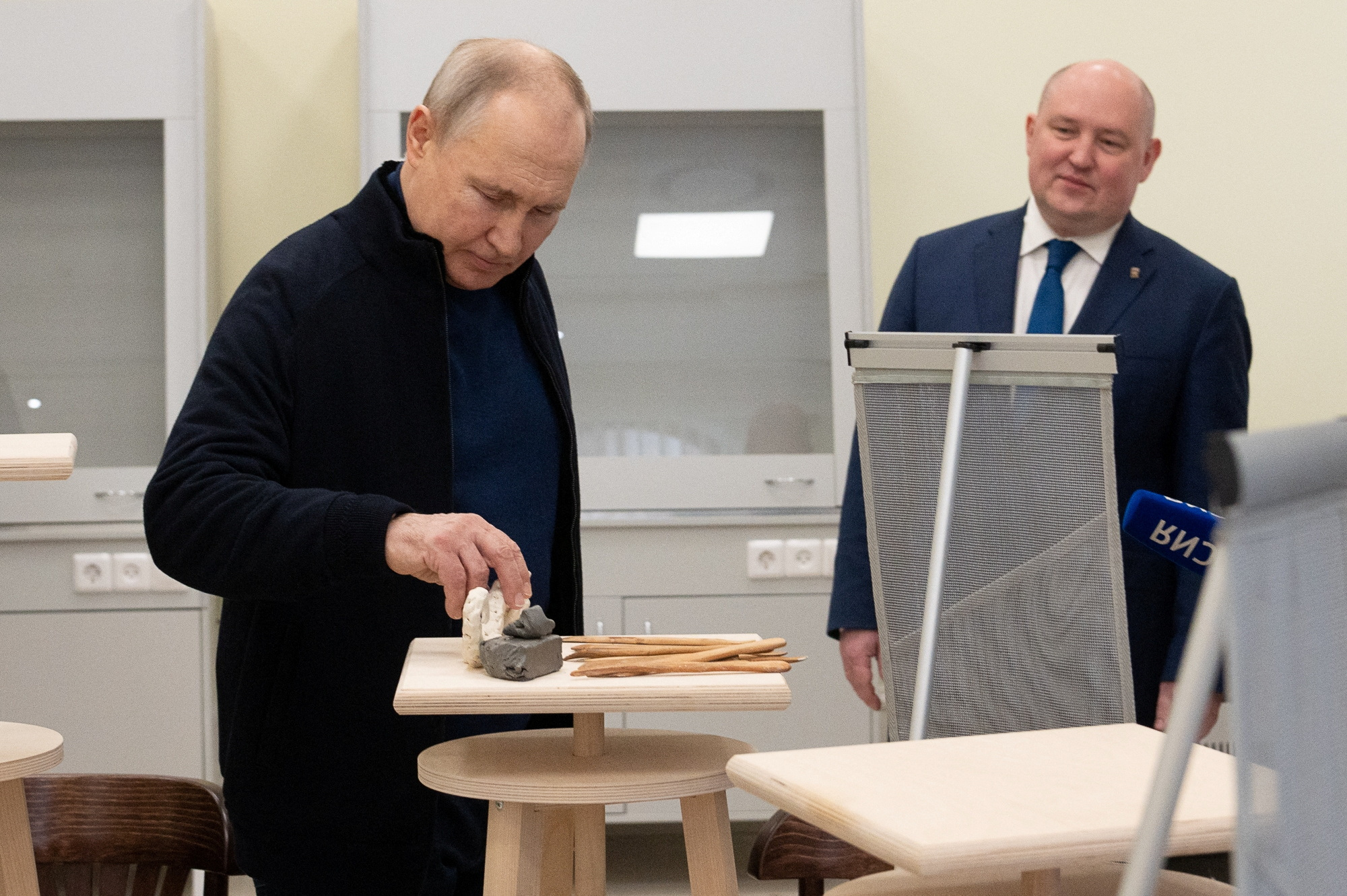
[elfsight_social_share_buttons id=”1″]
Vladimir Putin may not see the inside of a cell in The Hague any time soon, but his war crimes arrest warrant could hurt his ability to travel freely and meet other world leaders, who may feel less inclined to speak to a wanted man.
Putin is just the third head of state to be indicted by the International Criminal Court while still in power. Following is a look at what the consequences could be for the Kremlin leader.
WHAT IS THE CASE?
The ICC accuses Putin of responsibility for the war crime of deporting Ukrainian children – at least hundreds, possibly more – to Russia.
The Kremlin was quick to dismiss the allegations and the Russian foreign minister said ICC decisions “have no meaning for our country, including from a legal point of view.”
TRAVEL ABROAD
The ICC’s 123 member states are obliged to detain and transfer Putin if he sets foot on their territory. Russia is not a member and neither are China, the United States or India, which is hosting a summit later this year of leaders of the G20 group of big economies, which includes Russia.
The world’s permanent war crimes court was created by the Rome Statute, a treaty ratified by all the EU states, as well as Australia, Brazil, Britain, Canada, Japan, Mexico, Switzerland, 33 African countries and 19 nations in the South Pacific.
Russia signed the Rome Statute in 2000, but withdrew its backing in 2016, after the ICC classified Moscow’s annexation of Ukraine’s Crimea Peninsula as an armed conflict.
“Putin is not stupid. He’s not going to travel abroad to a country where he might be arrested,” said assistant professor of history at the Utrecht University Iva Vukusic.
“He is not going to be able to travel pretty much anywhere else beyond the countries that are either clearly allies or at least somewhat aligned (with) Russia,” Vukusic said.
ICC’S PAST EXPERIENCE
Sudan’s former president Omar al-Bashir and Libya’s Muammar Gaddafi are the only other leaders to have been indicted by the ICC while serving as head of state. Charges against Gaddafi were terminated after he was overthrown and killed in 2011.
Bashir, indicted in 2009 for genocide in Darfur, remained in office for another decade until being toppled in a coup. He has since been prosecuted in Sudan for other crimes but has not been handed to the ICC.
While in office, he traveled to a number of Arab and African countries, including ICC member states Chad, Djibouti, Jordan, Kenya, Malawi, South Africa, and Uganda, which declined to detain him. The court rebuked those countries or referred them to the U.N. Security Council for non-compliance.
The ICC has tried one former head of state after he left office: former Ivorian President Laurent Gbagbo, who was acquitted of all charges in 2019 after a three-year trial.
Kenya’s President William Ruto and his predecessor Uhuru Kenyatta were both charged by the ICC before they were elected. The charges against both men have since been dropped. Kenyatta is the only leader to have appeared before the ICC while still serving in office.
OTHER COURTS
Apart from the ICC, several former leaders have been tried by other international courts. Among notable cases:
Slobodan Milosevic, former president of Serbia and Yugoslavia, became the first former head of state to appear before an international tribunal since World War Two when he was tried at a U.N. court for alleged crimes during the 1990s Balkan wars. He died in custody in 2006 before a verdict was reached.
Liberian former leader Charles Taylor was found guilty of war crimes in 2012 by the U.N.-backed Special Court for Sierra Leone in The Hague, the first former head of state to be convicted of war crimes by an international court since the Nuremberg trials of Nazi leaders after World War Two.
Former Kosovo President Hashim Thaci, one of Milosevic’s adversaries in the 1990s Balkan wars, left office after being indicted for war crimes by the Kosovo war crimes tribunal in The Hague. He is due to go on trial next month.
Copyright 2023 Thomson/Reuters
